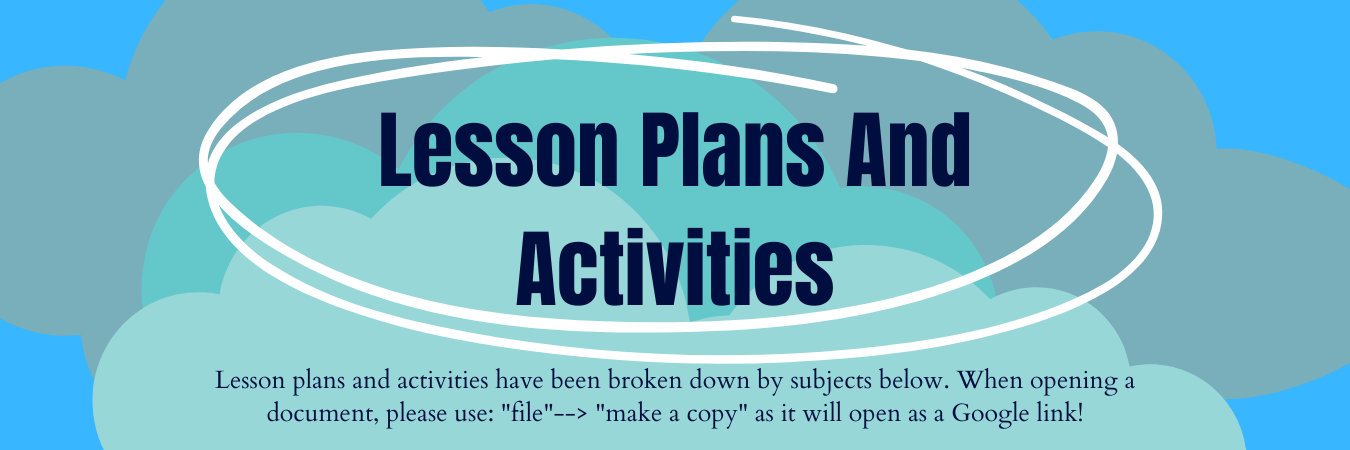
Icebreakers and Teambuilding
Individual Activities:
- What's in a name activity
- Rose, Bud, Thorn
- This or That
- About Me Presentations
- Introductions Presentations
- High/Lows
- Salt and Pepper Team Builder
- FYE Husky Bingo
- Self Introduction Activity
Pairs Activities:
- Pair & Share - Getting to Know Your Fellow Huskies
- Virtual Room Assignment
- Neighbours
- Guess Who
- What Am I?
Group Activities:
UConn 101
“First-year students can be taught the strategies and skills they need to fulfill their educational goals. Institutions must promote first-year student success by teaching them what and how to learn, providing them with opportunities to grow and develop, and teaching them the skills necessary to become responsible citizens.”(Nash et al., 2005). From rubbing Jonathan's nose to building teams and showcasing campus resources and offices, we have the opportunity to show incoming FYE students what it means to be a Husky!
UCONN Project Assignment Sheet
Exploring Campus Resources - Group Presentations
Campus Involvement
The National Survey of Student Engagement (NSSE) data have shown the more that students are involved on campus, the more likely they will stay enrolled at the institution and earn better grades (Kuh, Cruce, Shoup, Kinizie, & Gonyea, 2008). An involved student is “one who devotes considerable energy to academics, spends much time on campus, participates actively in student organizations and activities, and interacts often with faculty” (Astin, 1984, p. 292).
FYE Challenge Group assignment
Getting Out There: Friendships & Bucket List
Involvement Fair - Getting Involved assignment
Involvement Fair Scavenger Hunt
Research Connections Scavenger Hunt
Mapping Your UConn Journey Lesson Plan
Month of Discovery in October
"October will connect you to the opportunities you seek in enrichment, research, innovation, and creativity at events designed to offer the most impactful and informative experiences. If you participate in the Month of Discovery, you will find out how you can enhance your college journey in a research opportunity, passion project, classes, at additional events, through a grant, with a professor, and more" ("Month of Discovery," 2021).
Month of Discovery in October Activity.
Month of Discovery Assignment.
FYE UConn Discovery Assignment.
Ideal Things to Do in Your First Class
Goal Setting, Motivation, and Character
“Goal setting and motivation in the college world depends on our definition of success. How might our definition of success change our goals and motivation?" (Harackiewicz, 1998)
Goal Setting:
- Setting and Sticking to Goals
- Goal Setting - three part activity
- Goal Setting Exercises
- Goal Setting Index Card Activity
- 47 Goal Setting Exercises & Tools
- Goal Setting Template
- Goal Setting Lesson Plan
- Choose Your Own UConn Adventure (CYOUA)
- Three Things Reflection
Values:
Future Planning:
Diversity, Equity, and Inclusion
How do you define diversity? How do your students define diversity? As your students become members of our University, these types of discussions become important to their experience in our community. It is important that our students join us in promoting and nurturing different perspectives that are enabled through differences in culture, experience, and values. This is a core value of FYP&LC as well as the University of Connecticut as a whole, which is why you are strongly encouraged to incorporate additional cultural competency lessons into your course beyond the required Critical Reflection Assignment.
Ways to Introduce Conversations About Diversity and Privilege
- Watch YouTube Video: https://www.youtube.com/watch?v=1I3wJ7pJUjg
- Activity adaptation: A Step Above
- Activity: How Diverse is Your Universe
- Activity: Diversity and Inclusion BINGO
- University of Michigan
Diving Deeper
Additional Instructor Resources
- NASPA Inclusion 101 Training Guide
- USC Diversity Toolkit
- SJSU FYE Toolkit for Engaging Campus Diversity
- University of Michigan Instructor Prep
Diversity and Inclusion Lesson - Silent Interviewing
Land Acknowledgement and Sharing History
U.S. Culture Lesson Plan Document - for international students
Understanding White Privilege and Social Identities Lesson Plan
- Social Identities Wheel Activity
- Social Identities Wheel Discussion Questions
- Identity Choices Activity
Collect a Passport Stamp Activity
Academic Performance & Enrichment
Syllabi Comprehension
The class syllabus is a vital tool to supplement students' understanding of course expectations, materials, topics, and scheduling. Ensuring that students both understand the weight syllabi hold and the importance of reading them thoroughly is key to fostering early success in time management and course comprehension. Use this activity to help students learn and retain the information in their own syllabi.
The College Syllabi Assignment
Information Literacy
“...students think they know more about accessing information and conducting library research than they are able to demonstrate when put to the test” (Maughan, 2001). We can’t make the assumption that students are able to navigate the UConn Libraries and other resources on their own. Let’s lend a helping hand to our students to enrich their academic experience with all of the available resources UConn has to offer.
Information Literacy Scavenger Hunt
Strategic Planning
Strategic Learning is more than textbook reading strategies. Many high school scholars enter their college career as “passive learners who possess rote-level strategies for learning” that may have worked in high school, but make learning and studying much more difficult at the college level" (Simpson, 2000).
Reading Speed Activity with Reading Speed Packet and Reading Rate Handout (from Jamison Judd)
What Type of Learner Are You assessment
Critical Reflections
This recommended component involves a partnership with the Writing Center. Students will work on writing creatively and effectively based on one of the eight prompts offered for this assignment. After writing a draft, the student should schedule an appointment with a Writing Center tutor.
Health & Wellness
Being a healthy college student is no longer only focused on not gaining the dreaded Freshman-15. Student’s health, wellness and safety focuses on all aspects of the student: from physical to emotional to even mental health.
Stress Management Lesson Plan with Stress Management PPT
How to Make Stress Your Friend video with related lesson plan ideas on stress
Critical and Creative Thinking
The objective of this component is to help student recognize the ways in which critical and creative thinking, often considered to be daunting elements of academic inquiry, are actually vital life skills. You are encouraged to incorporate critical and creative thinking throughout your course, encouraging students to look at their college experience and the world from many angles, utilizing the best resources at their disposal. Ideally, this practice should be introduced early and assessed through an assignment you choose.
Defining Critical & Creative Thinking
Narratives through Diverse Perspectives
Understanding White Privilege and Social Identities Lesson Plan
Dialoguing and Community Building
Activities:
- The Alligator River Story - activity
- Analyzing Behaviors - TRIZ activity
- In the Mind of the Beholder - activity
- My Story activity
- Separating Fact from Inference - activity
- Story Circles activity
- What is in a Name activity
- Wrinkles in the Timeline activity
- Translating Translation activity
- Life History exercise
- The Supper Club Assignment
- Telling Our Stories of Change - closing out the semester
Lesson Plans:
Educated Media Consumption
Activities:
- Online Fake News quiz
Reading and Resources:
- Article - Sources of Falsehoods Spread by Text, Email, WhatsApp, and TikTok
- Article - 4 Tips for Spotting a Fake News Story
- Article - How to Spot Real and Fake News
- Article - List of Fake News Websites
- Infographic - How to Spot Fake News Infographic
- Research - Evaluating Information: The Cornerstone of Civic Online Reasoning (Stamford History Education Group)
- Resource - False, Misleading, Clickbait-y, and/or Satirical “News” Sources
- TedEd Video - How false news can spread - Noah Tavlin
- TedEd Video - How to choose your news
Financial Literacy
“Students suffer from a lack of financial literacy that leaves them unable to navigate the complex maze of financial aid applications and loan options, further adding to their money troubles even after they leave school.” Fiscal literacy isn’t just how to pay off student loans when students are out of college. Managing their finances throughout college is just as important and many student need help navigating that path, which will establish a successful financial management foundation for post-graduation.
Self-Awareness
As students transition into the University setting and begin their college experience, many of them struggle with self-awareness because it is not something they have had to deal with in the past. Self-awareness has been shown to have a huge impact on students learning processes and outcomes. Learning about one’s own personal needs, strengths and weakness is just the start to becoming self-aware. (Steiner, 2014)
- History of True Colors
- True Colors Facilitation Guide - PDF
- True Colors Facilitation Guide - Doc
- True Colors Activity
- True Colors - Survey Handouts
- True Colors - PowerPoint
W-Curve Handout, Initiation activity, and Project with Rubric by Molly Woods
Values Clarification Carousel activity
Understanding White Privilege and Social Identities Lesson Plan
International Lesson Plans
Debate Group Brainstorming Document, and Debate Rubric
Major-Based
Current Issue in the Field paper
Exploring Major-Based Campus Involvement presentations
LC Innovation Zone - plan a class workshop in the LCIZ, with a focus on skills helpful in your field!
Major Related Event Presentation
Professional Article presentations
Career Planning
Students usually have a long list of beliefs about majors and many of them are wrong. Deciding on a major and planning for a future career can be very stressful for students who feel as if they have to go at it alone and are unsure of how to work with their advisor. More than half of our students will most likely change their major, so we should give them the tools they need to make that decision.
Career Modules from the Center for Career Development:

